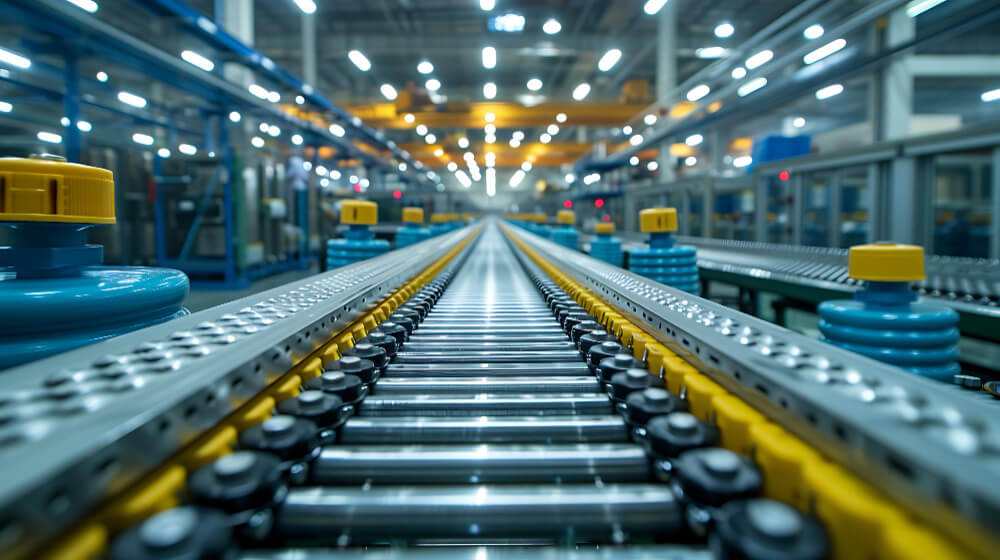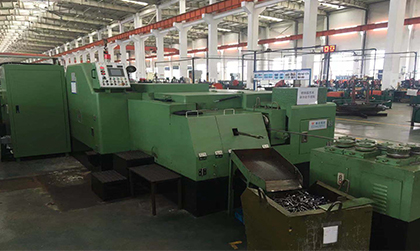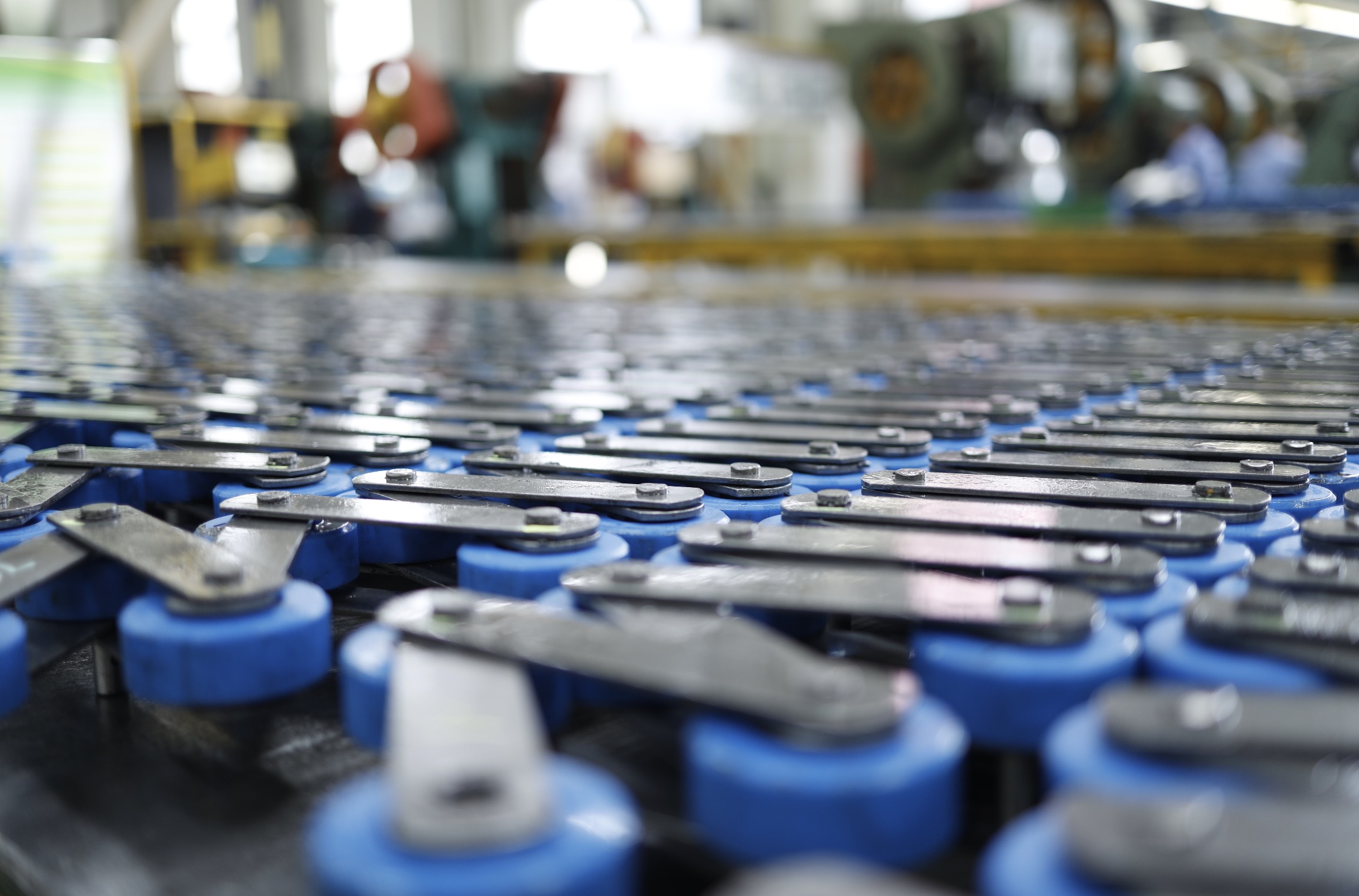A Grabenfräsenkette ist eine spezielle Hochleistungsindustriekette, die in Grabmaschinen zum effizienten und präzisen Ausheben schmaler und tiefer Gräben verwendet wird.
Diese Ketten sind dafür ausgelegt, durch verschiedene Bodenarten zu schneiden, darunter auch schwieriges und felsiges Gelände.
Grabenketten gewährleisten die genaue und gleichmäßige Erstellung von Gräben, die für die Verlegung von Rohren, Kabeln und Entwässerungssystemen unerlässlich ist.
Sie sind für eine hohe Beanspruchung ausgelegt und daher für Bau- und Versorgungsprojekte unverzichtbar.
Lesen Sie weiter, um mehr über Grabenketten, ihre Komponenten und ihre Lieferanten zu erfahren.
Was ist die Funktion eines Grabenfräsen?
Ein Grabenfräse ist eine Baumaschine zum Ausheben von Gräben. Dabei handelt es sich um lange, schmale Ausgrabungen, die zum Verlegen von Rohrleitungen, Kabeln, Abwassersystemen und anderen Versorgungseinrichtungen erforderlich sind.
Grabenfräsen gibt es in verschiedenen Größen und Konfigurationen, vom handgeführten Modell bis hin zu großen, schweren Maschinen auf Raupen oder Rädern.
Die Hauptfunktion eines Grabenfräsen besteht darin, schnell und effizient Gräben auszuheben und dabei eine gleichmäßige Tiefe und Breite sicherzustellen, was für die korrekte Installation der Versorgungseinrichtungen von entscheidender Bedeutung ist.
Grabenfräsen können verschiedene Bodenarten durchschneiden, darunter auch harte Erde, Lehm und felsiges Gelände, und sind daher vielseitige Werkzeuge für verschiedene Bau- und Landschaftsbauprojekte.
Ersatzteile für Grabenketten
Grabenfräsenketten bestehen aus mehreren Schlüsselteilen, von denen jedes eine entscheidende Rolle für die Gesamtfunktionalität der Maschine spielt.
Das Verständnis dieser Teile hilft dabei, die Leistung des Grabenfräsens aufrechtzuerhalten und zu optimieren.
#1. Kettenglieder
Die Kettenglieder sind die Hauptbestandteile einer Grabenfräsenkette und bilden die Endlosschleife, die den Schneidmechanismus antreibt.
Diese Verbindungen sind aus hochfestem Stahl gefertigt, um den erheblichen Belastungen standzuhalten, die bei Grabungsarbeiten auftreten.
Die Konstruktion der Glieder sorgt für Flexibilität und Langlebigkeit und gewährleistet, dass sich die Kette reibungslos um die Kettenräder und Führungen des Grabenfräsens bewegen kann.
Schneidezähne
Die an den Kettengliedern befestigten Schneidzähne sind die Hauptelemente, die für das Aufbrechen und Verschieben des Bodens verantwortlich sind.
Diese Zähne bestehen normalerweise aus gehärtetem Stahl oder Hartmetall und bieten die notwendige Schärfe und Verschleißfestigkeit, um harte Materialien zu schneiden.
Je nach Bodenart und den spezifischen Anforderungen der Grabungsaufgabe können die Zähne in verschiedenen Mustern angeordnet werden.
#3. Kettenräder
Kettenräder sind Zahnräder, die in die Kettenglieder eingreifen und die Grabenfräsenkette vorwärtstreiben.
Sie sind von entscheidender Bedeutung für die Aufrechterhaltung der richtigen Spannung und Ausrichtung der Kette.
Kettenräder werden aus langlebigen Materialien hergestellt, um Verschleiß zu widerstehen, und sind so konzipiert, dass sie eine reibungslose Kraftübertragung vom Motor des Grabenfräsens auf die Kette gewährleisten.
#4. Rollen und Führungen
Rollen und Führungen helfen dabei, die Grabenfräsenkette zu lenken und sicherzustellen, dass sie während des Betriebs an ihrem Platz bleibt.
Sie verringern Reibung und Verschleiß der Kette und tragen so zur Gesamteffizienz und Langlebigkeit des Grabenfräsens bei.
Diese Komponenten sind strategisch entlang des Rahmens des Grabenfräsens platziert, um die Bewegung der Kette zu unterstützen und zu führen.
#5. Spanner
Spanner sind Mechanismen, die die richtige Spannung in der Grabenfräsenkette aufrechterhalten.
Die richtige Spannung ist für den effizienten Betrieb des Grabenfräsens von entscheidender Bedeutung und verhindert, dass die Kette rutscht oder entgleist.
Spanner können je nach Ausführung des Grabenfräsen manuell eingestellt oder automatisch betätigt werden.
Lieferant von Grabenketten
Wenn es um die Beschaffung hochwertiger Grabenketten geht, Universal Kette ist ein renommierter Hersteller in der Branche.
Universal Chain ist für seine Fachkompetenz in der Herstellung langlebiger und zuverlässiger Ketten bekannt und bietet eine Reihe maßgeschneiderter Produkte an, die den Anforderungen verschiedener Grabungsanwendungen gerecht werden.
Ihre Grabenketten sind für harte Bedingungen und starke Beanspruchung ausgelegt und gewährleisten optimale Leistung und Langlebigkeit.
Das Engagement von Universal Chain für Qualität und Innovation macht das Unternehmen zu einem vertrauenswürdigen Lieferanten für Bau- und Versorgungsprojekte weltweit.
Für diejenigen, die zuverlässige Grabenketten suchen, Kontakt Universal-Kette heute.


